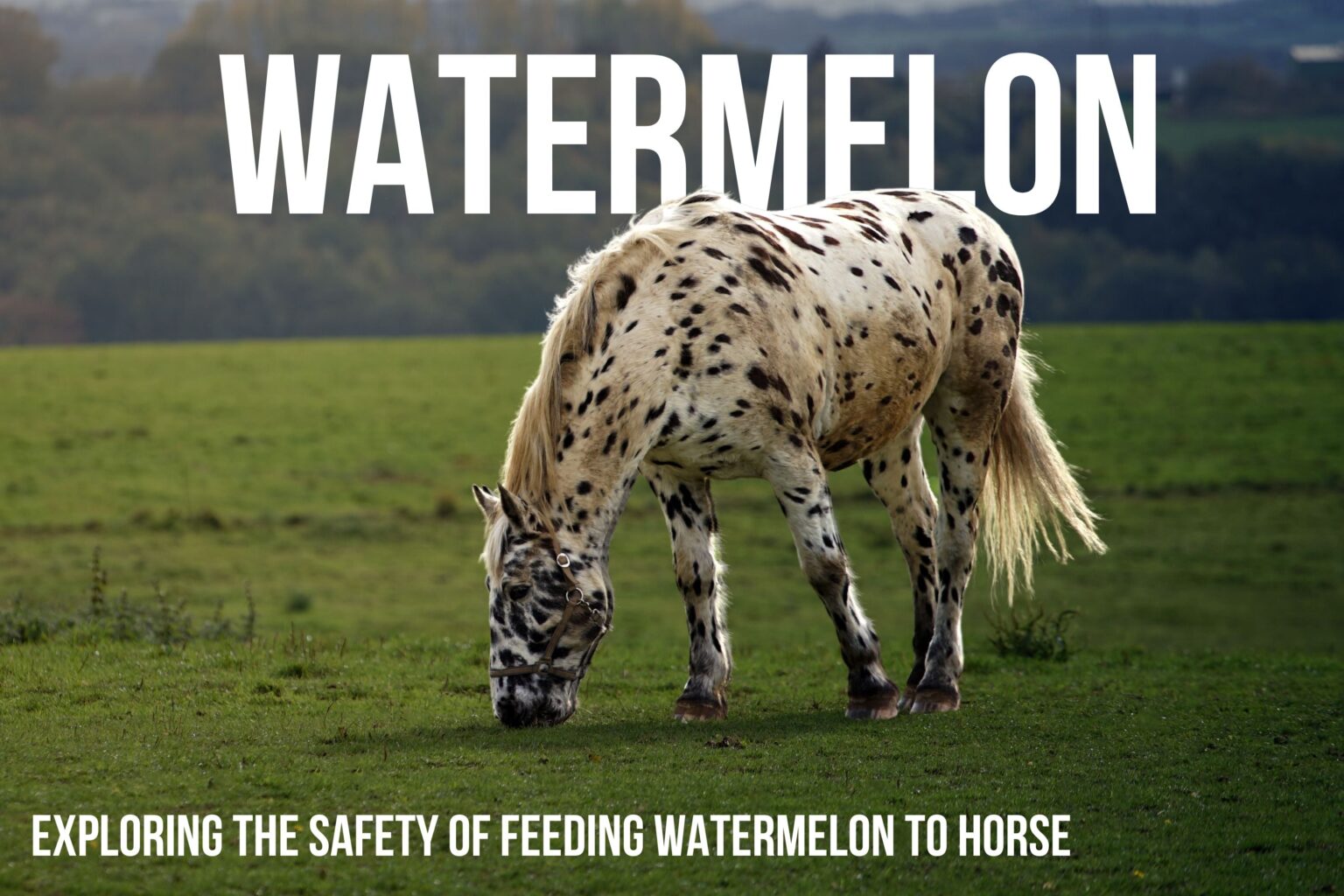
Can Horses Safely Eat Watermelon? A Comprehensive Guide
Watermelon is a refreshing and hydrating fruit that many people enjoy during the hot summer months. But can horses safely indulge in this juicy treat as well? As an experienced equine copywriter and SEO expert, I’ve done extensive research to provide a comprehensive guide on feeding watermelon to horses.
The Nutritional Benefits of Watermelon for Horses
Watermelon is more than just a tasty snack – it’s actually quite nutritious for horses too. This fruit is rich in vitamins A, C, and B6, as well as minerals like potassium and magnesium. The high water content of watermelon can also help keep horses hydrated, especially during the hot summer months.
Additionally, watermelon contains citrulline, an amino acid that may have anti-inflammatory properties and could potentially help reduce muscle soreness in athletic horses. The lycopene found in watermelon is also a powerful antioxidant that can support overall horse health.
The Potential Risks of Feeding Watermelon to Horses
While watermelon offers many nutritional benefits, it’s important to be mindful of the potential risks as well. The high sugar content in watermelon could potentially cause digestive issues or even colic in some horses, especially those prone to metabolic conditions like equine metabolic syndrome (EMS) or insulin resistance.
It’s also crucial to ensure that horses only consume the flesh of the watermelon and not the rind or seeds, as these can be difficult to digest and may cause intestinal blockages.
Proper Feeding Techniques for Watermelon
To safely incorporate watermelon into your horse’s diet, it’s best to start with small amounts and monitor their reaction. Begin by offering just a few small cubes or slices of watermelon flesh, and gradually increase the serving size if your horse tolerates it well.
It’s also important to always remove any seeds or rinds before feeding watermelon to your horse. The flesh should be cut into bite-sized pieces to prevent choking hazards.
Additionally, watermelon should be considered a treat and not a replacement for your horse’s regular balanced diet. It’s crucial to maintain a healthy, fiber-rich diet and only offer watermelon in moderation as an occasional snack.
➤ Also Read: Can Horses Eat Tomatoes? Navigating the Risks and Benefits
Feeding Watermelon to Horses with Metabolic Conditions
For horses with metabolic conditions like EMS or insulin resistance, watermelon should be approached with even greater caution. The high sugar content in this fruit could potentially exacerbate these conditions and lead to serious health issues.
In these cases, it’s best to consult with your veterinarian before introducing watermelon into your horse’s diet. They may recommend limiting the amount or frequency of watermelon feeding or finding alternative low-sugar treats.
Calculating the Potential Costs of Watermelon for Horses
Assuming an average horse weighs 1,000 pounds and you want to feed them a modest 2-pound slice of watermelon as a treat, the cost would be approximately $0.50 per serving.
If you were to feed your horse a 2-pound slice of watermelon once a week during the summer months (June-August), the total cost would be around $39 for the season.
Of course, the exact cost will vary depending on the size of your horse, the local produce prices, and the frequency of watermelon feeding. But this calculation can give you a general idea of the potential expenses involved in adding watermelon to your horse’s diet.
Incorporating Watermelon into Your Horse’s Diet
When introducing watermelon to your horse, it’s best to start slowly and observe their reaction. Begin by offering small pieces of the fruit and gradually increase the serving size if they tolerate it well.
You can also try mixing watermelon into your horse’s regular feed or offering it as a refreshing treat on hot summer days. Some horse owners even freeze watermelon cubes into tasty popsicles for their equine companions.
Ultimately, the key is to find a balanced approach that works for your individual horse and their specific dietary needs. By understanding the benefits and risks of watermelon consumption, you can make informed decisions to keep your horse happy, healthy, and hydrated.
Frequently Asked Questions about Horses and Watermelon
1. Can horses eat watermelon safely? Yes, horses can safely eat watermelon in moderation as an occasional treat. However, it’s important to remove any seeds or rinds and start with small portions, especially for horses with metabolic conditions.
2. What are the benefits of feeding watermelon to horses? Watermelon is a nutritious fruit that can provide horses with vitamins, minerals, and hydration. It may also have anti-inflammatory properties that could benefit athletic horses.
3. Are there any risks associated with feeding watermelon to horses? The high sugar content in watermelon could potentially cause digestive issues or colic in horses, especially those with metabolic conditions. It’s crucial to feed watermelon in moderation and avoid the rinds and seeds.
4. How much watermelon can I feed my horse? It’s best to start with small portions, such as a few cubes or slices, and gradually increase the serving size if your horse tolerates it well. Consult your veterinarian for specific feeding recommendations, especially for horses with metabolic conditions.
5. What is the cost of feeding watermelon to horses? The cost of feeding watermelon to horses can vary depending on the size of your horse, the local produce prices, and the frequency of watermelon feeding. As a general estimate, a 2-pound slice of watermelon as a weekly treat during the summer months could cost around $39 for the season.






















